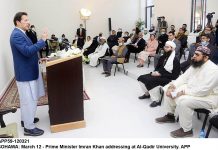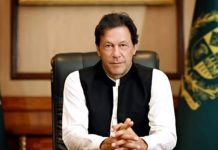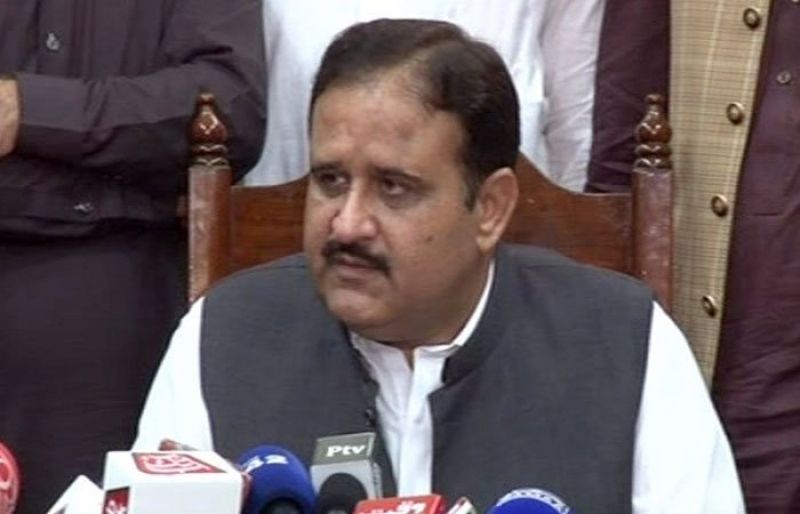مضمون کا ماخذ : apostas lotofácil
Wrangling among big powers in Asia leaving less space for foreign policy
ISLAMABAD: The Strategic Vision Institute (SVI)on Tuesday warned that competition between external powers over energy resources, trade corridors, pipelines and military bases was narrowing foreign policy options for the countries in south, central and west Asia – this could aggravate the security situation in the region. This observation was made by the think tank at […]
ISLAMABAD: The Strategic Vision Institute (SVI)on Tuesday warned that competition between external powers over energy resources, trade corridors, pipelines and military bases was narrowing foreign policy options for the countries in south, central and west Asia – this could aggravate the security situation in the region.
This observation was made by the think tank at the end of a two day national conference on ‘Regional Security and Foreign Policy in South, Central and West Asia’, which was held in collaboration with German foundation Konrad Adenauer Stiftung. The conference looked at the factors affecting peace and security in the region and possible future trajectory of events in the region.
The think tank called on the United States, Russia, and China to contribute to peace and prosperity in the region. It emphasised the need for a political and security architecture in South Asia, where prospects for peaceful resolution of disputes were diminishing due to India’s aggressive posture towards its neighbours; particularly Pakistan. It noted that India had been emboldened by its strategic partnership with the United States, which was not only serving to contain China, but also undermining Pakistan’s security.
SVI observed that India was investing in Afghanistan and Iran to pave the way for expansion of its influence in West Asia. The think tank counseledthe government against participation in multilateral security arrangements that could antagonise another Muslim country. It also called for mollifying Afghan concerns, despite being misplaced, for developing better connectivity with Central Asia.
The think tank recommended continued engagement with the United States and at the same time asked the government for better planning and negotiating terms of cooperation with China so as to maximally benefit from China’s rise.
Former Defence Secretary Naeem Khalid Lodhi said Pakistan was not in a position to side with any of the major powers. He stated, “Instead of branding others as friends and enemies, it was important to keep an eye on their interests and align with those that suit us, while resisting their interests that adversely affect us.”
Dr Tughral Yamin Malik, Department of Peace and Conflict Studies, NUST, recommended diversification of Pakistan’s foreign policy. He said the country’s foreign policy had become too India-focused and therefore needed to be retuned to make it look beyond India. In his view, the outlook of Pakistan’s external relations would have been diametrically different if only half of the efforts made to improve relations with India were dedicated for better ties with Iran and Afghanistan.
Fauzia Nasreen, Center for Policy Studies, COMSATS, pointed towards the emerging challenge of an India-Afghanistan-Iran nexus for Pakistan. She advised a nimble-footed foreign policy that could balance between Iran and Saudi Arabia, address Afghanistan’s concerns, and explore prospects of improvement in relations with India.
Dr Saif Malik said projects like TAPI & CASA 1000, despite all the progress they have achieved so far, face issues of financing, uninterrupted supplies, and security.
“TAPI foremost requires safety in Afghanistan, whereas, realizing CASA-1000 will require strategic actions, long-term vision, and public – private sector partnership,” he revealed.
The success of the projects would, meanwhile, promote inter-regional cooperation, investments in social services, and encourage community contacts, besides strengthening politico-economic development of the region in the long run, he added.
Dr Nadeem Mirza, QAU, said China was in the third phase in its journey to becoming a great power of the international system. This is the partnership phase, whereas the fourth and final phase would be the ‘leadership’ of the international system. He analyzed the Chinese perspective of the great power politics in Central Asia. He believes that the most interesting aspect of the debate is why Russia despite being the dominant power in the region was giving space to other great powers, particularly China, in its privileged area of influence.












